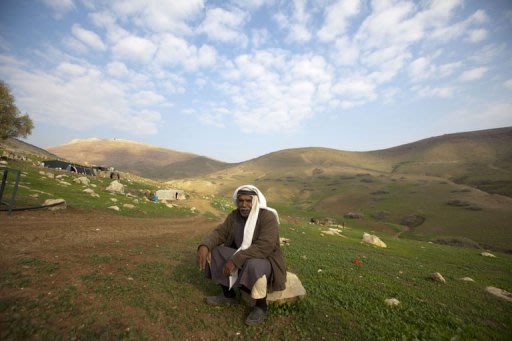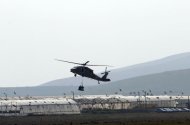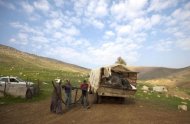Around 500 Bedouin Palestinians were temporarily evacuated from their homes in the Jordan Valley on Wednesday as the Israeli army carried out exercises, residents and the army said.
An AFP photographer at the scene saw dozens of people being evacuated in the Wadi al-Maleh area in the north of the Jordan Valley in the West Bank.
"These exercises have driven away more than 400 people, women, children and elderly people, and could have taken place elsewhere," Aref Daraghmeh, a municipal official, told AFP.
He said 75 families had received evacuation orders last week, ahead of the 24-hour exercise.
The Palestinian governor of the region, Majid al-Fitiani, criticised the evacuation, saying "even an expulsion of 24 hours is unacceptable."
The Israeli military acknowledged issuing 24-hour evacuation orders in a statement sent to AFP, noting that the homes residents were asked to leave had been constructed illegally, but pledging they would be allowed to return to them.
"Due to a military exercise... and in order to ensure the safety of the local inhabitants, temporary eviction notices were distributed today to the residents of the illegal structures located in a closed military zone," the army said.
"At the conclusion of the exercise, the residents will be permitted to return," the statement continued, emphasising that Israel considers the homes in question "illegal in nature."
A similar temporary evacuation was carried out in the same region last year while Israeli forces carried out military exercises.
The area falls into the 60 percent of the West Bank classed as Area C, which is under full Israeli administrative and security control. Residents of the area are required to obtain Israeli building permits or face home demolitions.
Palestinians and rights activists say the permits are almost impossible to come by, so residents often build without them, leaving them open to Israeli demolitions.
Of the 60,000 Palestinians living in the Jordan River valley, "some 3,400 people reside partially or fully in closed military zones and face a high risk of forced eviction," according to the UN's Office for the Coordination of Humanitarian Affairs.



No comments:
Post a Comment